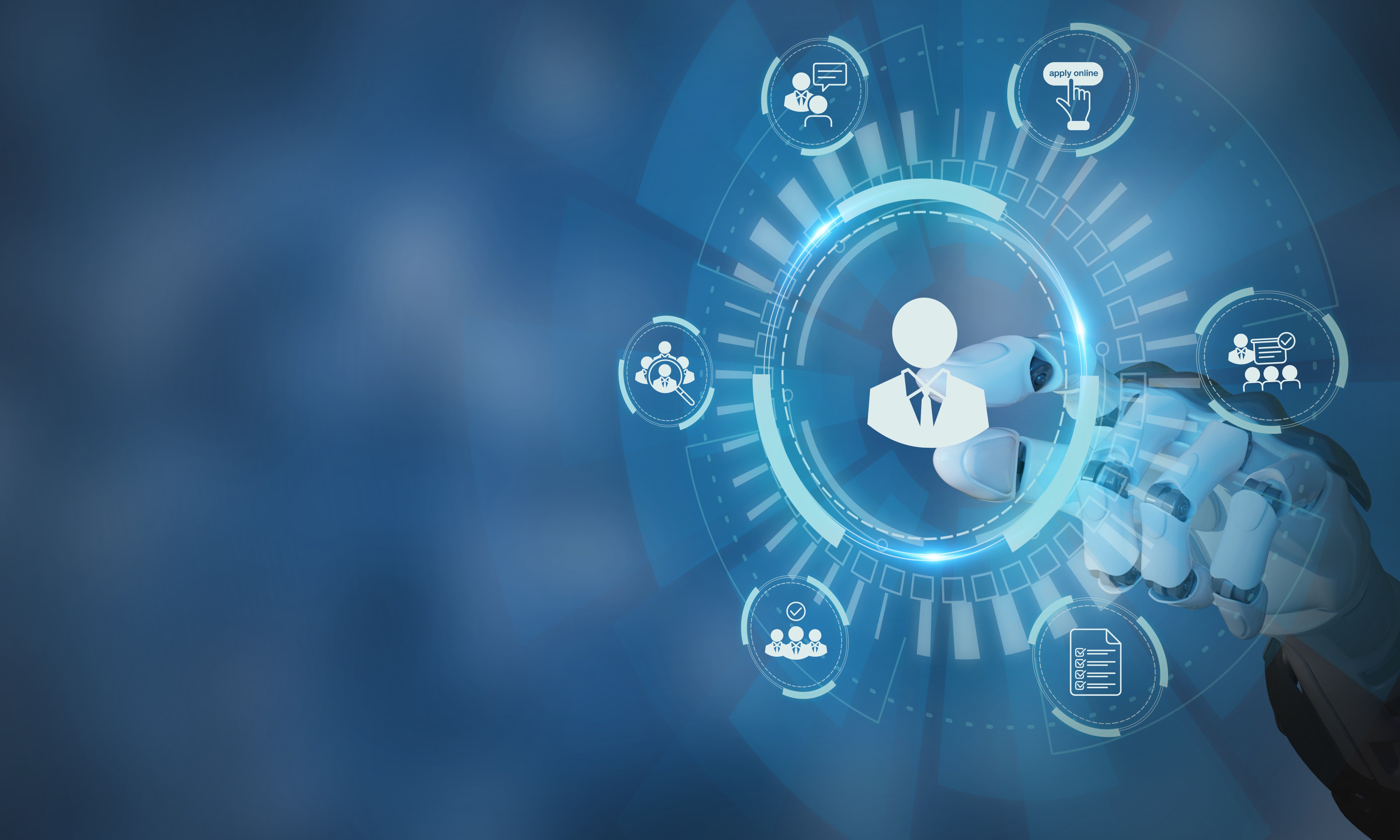Human Resources teams across the globe are more challenged than ever to deliver a great experience to employees and job candidates and to achieve this with maximum efficiency. Many HR teams are exploring ways that AI can be leveraged to meet these challenges, particularly in the domain of talent acquisition. Interestingly, a recent Gartner survey of HR leaders revealed that while more than half of the survey respondents reported that they were actively investigating how best to utilize AI, most have taken little to no action yet.

This suggests that while many HR professionals want to leverage AI, there are still a lot of questions about where to apply machine learning for maximum ROI. As an end-to-end digital transformation partner with multi-platform expertise and a dedicated AI development team, we have a few suggestions.
1. Automated Resume Screening
Applicant tracking solutions are not exactly new, but generative AI is allowing them to be even more robust in how much time they save recruiters. Generative AI can analyze, and screen resumes automatically, identifying key skills, experiences, and qualifications that match job requirements. This streamlines the initial screening process, allowing recruiters to bypass ill-fitting applicants and put focus on promising candidates.
2. Personalized Candidate Outreach
AI offers multifaceted benefits to talent recruiters by enhancing personalized candidate outreach. By leveraging AI-powered tools, recruiters can craft tailored job descriptions and interview scheduling emails, improving candidate engagement and experience, and saving busy recruiters a whole lot of time. AI's ability to analyze large data sets expedites personalized messaging at scale, saving time and ensuring relevance to each candidate's qualifications. As a bonus, AI can also facilitate campaign performance tracking, refining strategies for better engagement.
3. Interview Question Generation
There’s no doubt that content generation is a major area where AI can lift the burden away from talent recruiters and demonstrate value immediately. And while AI can help with general content needs, it can really shine with targeted content as well, such as generating interview questions. These can be tailored to specific roles or skills. By analyzing job descriptions and desired competencies, AI can generate relevant questions, saving recruiters time in preparing for interviews.
4. Predictive Candidate Matching
Sifting through sometimes hundreds of candidates is unbelievably time-consuming for recruiters. It’s also one more area where AI can lend a hand. Using historical data and machine learning algorithms, AI can predict which candidates are most likely to succeed in a given role. This helps recruiters prioritize candidates and focus their efforts on those with higher potential, improving overall hiring outcomes.
5. Unconscious Bias Mitigation
Let’s tread carefully here. AI can help mitigate human bias in recruitment by emphasizing qualifications over subjective factors, promoting fairness in the hiring process. Having said that, we know that most chatbots – just by dint of how they’re trained – continue to reflect human bias. There are ways to augment the algorithm’s training to reduce inherent bias “learned” from humans; however, it’s important to consider where AI can and should specifically help reduce unconscious bias, and where human oversight is necessary to ensure that the recruitment process has fairness built in.
6. Automated Candidate Feedback
After interviews or assessments are complete, AI can step in to generate standardized feedback for candidates based on their performance. This feedback can be customized to highlight strengths, areas for improvement, and next steps in the hiring process, enhancing candidate experience and saving recruiter time on manual feedback generation.
Implementing generative AI solutions into an HR tech stack can offer numerous benefits, but there are several challenges or blockers that HR teams should consider as you move through the implementation process.
Challenges to Consider
Here are a few considerations to keep top of mind as you’re planning your AI strategy and implementation:
1. Privacy and Compliance Concerns:
Handling sensitive employee and candidate data raises privacy and compliance concerns, especially with regulations like GDPR or CCPA. Ensuring AI systems adhere to data protection laws and maintaining transparency in data usage can be challenging but crucial for trust and legality.
2. Integration with Existing Systems:
Integrating new AI solutions with existing HR systems like ATS, HRIS, and payroll software can be complex. Compatibility issues, data synchronization challenges, and customization requirements may arise, requiring collaboration between HR, IT, and AI specialists. Obviously, Mastek can help with this and all aspects of AI implementation across multiple platforms and the most complex of tech landscapes. Note that many established platforms, like Oracle for example, are already finding ways to embed AI into their existing modules.
3. Change Management and Adoption:
Introducing AI-driven processes may face resistance or skepticism from employees, managers, or stakeholders unfamiliar with AI technology. Effective change management strategies, training programs, and clear communication about AI's benefits and limitations are crucial for successful adoption.
Among the 177 HR leaders surveyed by Gartner, a whopping 84% “believe that generative AI will make existing HR activities more productive, while two-thirds think generative AI will eliminate redundant activities within the function.”
By leveraging AI technologies in the areas described in this article, talent recruiters can optimize their workflow, increase efficiency, and make more informed hiring decisions. There’s clearly a lot of hope that AI will help often overstretched recruiters to work smarter and with greater efficiency while simultaneously delivering a stellar experience to applicants and new hires. AI is definitely well-positioned to meet expectations.
Would you like to learn more about how generative AI and AI analytics can improve your recruitment workflows, saving both time and money? Contact us today for a demo and discovery session.
